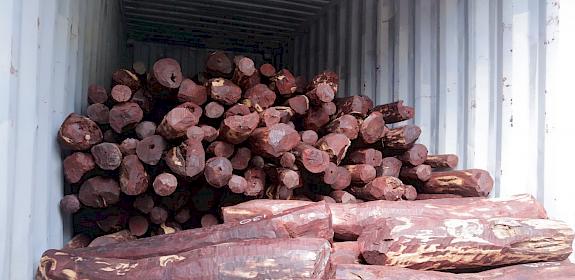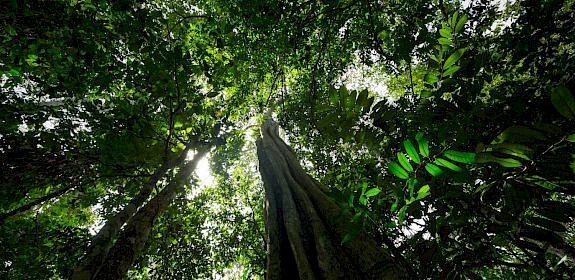Kenya judiciary stakeholders advance their commitment to tackling wildlife crime
Amboseli, Kenya, 16th December 2019—the 9th National Judicial Dialogue on Wildlife and Environment Enforcement and Conservation took place last week in Amboseli on the theme of Wildlife crime as a transnational economic and organised crime: inter-agency co-operation in managing emerging challenges and frontiers.
The Dialogue aimed to identify emerging trends, priorities, build capacity among the agencies, and explore partnerships to mobilise resources for strengthening the legal sector’s response to wildlife crimes in Kenya and beyond.
Delegates came from the Judiciary, Office of the Director of Public Prosecutions, Attorney General’s Office, the Assets Recovery Authority, Directorate of Criminal Investigations, National Police Service, Kenya Wildlife Service, Kenya Forest Service, Kenya Revenue Authority, Kenya Ports Authority, Kenya Airports Authority, Ethics and Anti-Corruption Commission amongst other law enforcement authorities,’ conservation organizations including Wildlife Direct and Space for Giants, civil society representatives, community representatives and partners.
They were joined by a Magistrate from Namibia (Ms Alexis Diergaardt) and a senior Judge from Mozambique (Hon. Antonio Namburete), helping build links and cohesion to other countries in the region facing the realities of addressing wildlife crime.
For the past nine years, the Dialogue has been pivotal in building awareness and dialogue around concerns and challenges in the implementation of wildlife laws and strengthening collaboration among various agencies, capacity building trainings, and the development of a pilot curriculum to addressing wildlife and environmental crimes which have benefitted over 600 judicial and law enforcement officers in Kenya.
During this week’s meeting, participants spoke of recent achievements and current issues and challenges, frequently citing corruption as a critical factor in facilitating wildlife crimes in the country. Representatives from each agency were given the opportunity to identify ways forward and action points in relation to curbing wildlife and forest crime in Kenya.
The meeting was officially opened by Joseph Sarara KWS Head of Investigations, on behalf of Brig. (Rtd) John M. Waweru, Director General, Kenya Wildlife Services. During the opening speech, KWS pledged full support to judiciary and prosecution activities to tackle and disrupt wildlife crimes. He also spoke about various achievements by the Kenya Wildlife Service to combat wildlife crime and ways in which the government would build on existing commitments and new partnerships to curb criminal networks.
Julie Thomson, Director TRAFFIC East Africa Office said: “Wildlife crime cannot be tackled by one institution alone—it needs collaboration across a wide range of sectors and TRAFFIC is fully committed to supporting those collective efforts.”
In his remarks, Josphat Ngonyo Executive Director of Africa Network for Animal Welfare (ANAW) highlighted the impacts the dialogue has had since 2013. This include embracing of the platform by sixteen law enforcement agencies and stakeholders who openly discuss issues affecting wildlife and environmental crime, good case management and high conviction rates among others.
The National Judicial Dialogue is an annual event which is organised by the Kenya Judiciary Training Institute (JTI) and ANAW. This year’s 9th dialogue took place at Amboseli Serena Safari Lodge and was organised in collaboration with TRAFFIC through the support from the USAID-funded Wildlife Trafficking, Response, Assessment and Priority Setting (Wildlife TRAPS) Project, WWF; the United Nations Office on Drugs and Crime (UNODC) through funding support from the European Union and Wildlife Direct.





